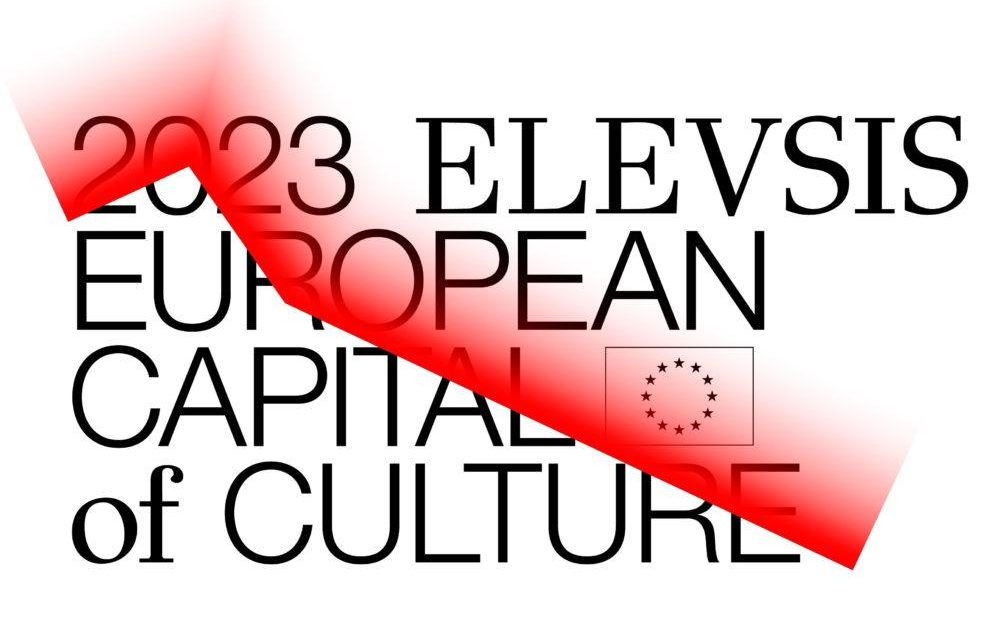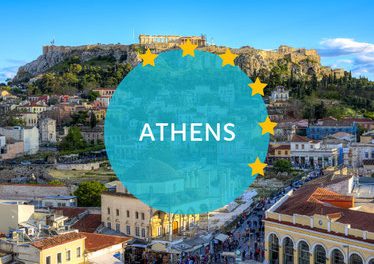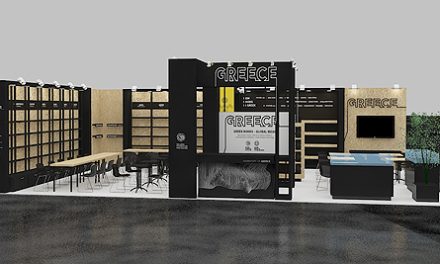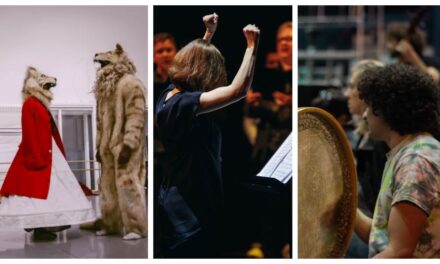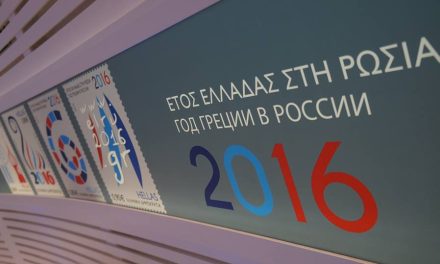The institution of the European Capital of Culture returns in 2023 to its native country. Elefsina, one of the five most important sacred cities of Ancient Greece, the city of the Elefsinian Mysteries and birthplace of Aeschylus, was transformed from the 19th century onwards into the productive engine of modern Greece and one of its largest industrial hubs. Drawing inspiration from the rich history of the city, 2023 Eleusis forms an integrated artistic, research and educational program, with the general title Mysteries of Transition, which focuses on the three Axes: People – Society / Labour / Environment. The beginning of 2023 Eleusis European Capital of Culture will be marked by a spectacular Opening Ceremony on February 4, entitled “Mystery_0: Mysteries of Transition”, which will take place at the coastal front of the city, conceived by of the General Artistic Director of the organization, Michail Marmarinos and directed by distinguished British director Chris Baldwin.
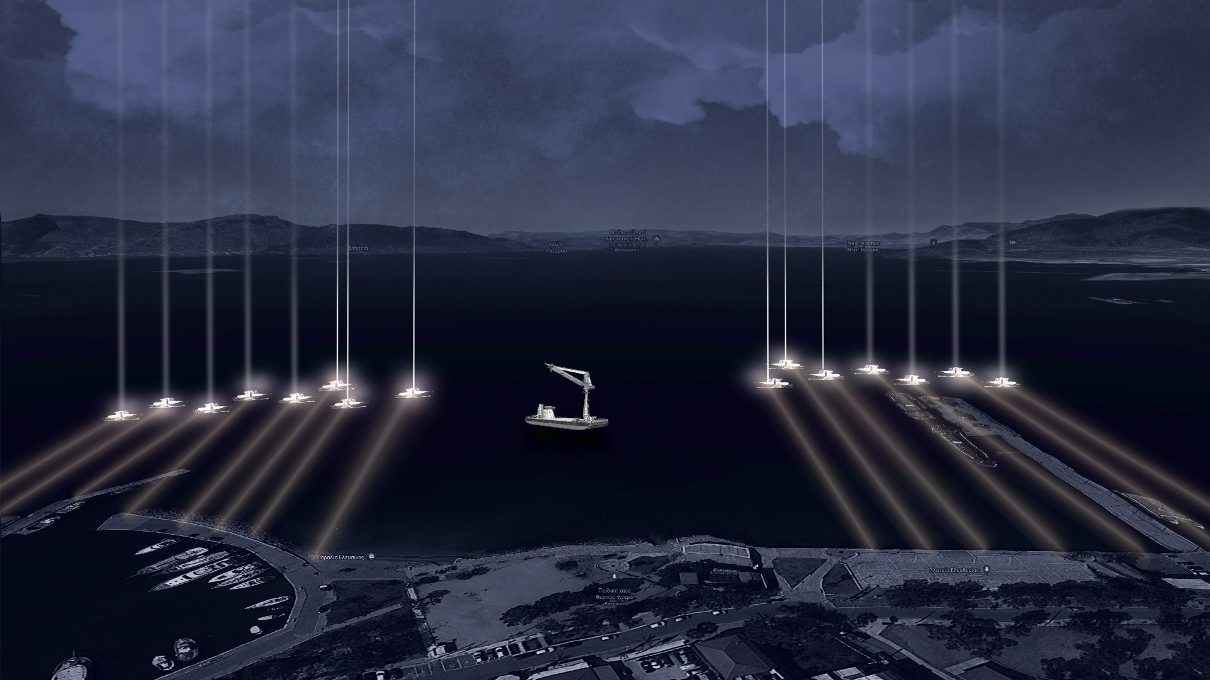
The MYSTERIES OF TRANSITION programme will run throughout 2023 presenting a total of 465 productions in 30 different venues, and hosting more than 300 distinguished artists from all over the world : Romeo Castellucci, Sasha Waltz, Jochen Sandig, Heiner Goebbels, Katerina Gregou, Theodoros Kourentzis, TimeCircus, Evripidis Laskaridis, Eleni Karaindrou, Haruka Hirayama, Yannis Houvardas, Juan Sandoval, Patricia Apergi, Nikos Navridis, Vana Xenou, Roxane Revon, Lina Bertucci, Menelaos Karamaggiolis, Maria Papadimitriou, Eva Stefani, Nikita Milivojević, Thodoris Economou, Eleftheria Deco, Thierry De Mey & Percussions de Strasbourg, Syllas Tzoumerkas, Lena Kitsopoulou, Marina Satti, Philippos Koutsaftis, Evi Kalogiropoulou, Navine G. Dossos, Athens State Orchestra, MarinaFokidi, Dresden Symphony Orchestra, Yolanda Markopoulou, Christodoulos Panagiotou, Novoflot, Humanhood, Argyro Chioti, Dome Wood & Sam Steverlynck, Angela Bruscou, Steven Berkoff, Intercultural Alternative Stage Orchestra National Opera, StereoNova.
2023 Eleusis will host world premiere artworks, highlight artists from the local community as well as roll out educational and regeneration programmes, transforming the city into a cultural hub. National institutions – such as the National Museum of Contemporary Art (EMST), the Benaki Museum, the Athens Epidaurus Festival and the Thessaloniki Film Festival, as well as 137 international partners, cooperated in putting together a multifaceted programme. Key partnerships were established with European networks and organisations such as Culture Action Europe, The Festival Academy (initiative of the Union of European Festivals), Culture Next Network, United Cities and Local Governments, International Network of Performing Arts – IETM, Circostrada – European network for street arts and contemporary circus, In SITU platform for art in public space, Fab Lab network, On the Move, and many more.
2023 Eleusis European Capital of Culture. The city is changing.
As part of the Capital of Culture, a total of 30 interior and exterior, outdoor and public spaces are activated. Important buildings and industrial monuments of the city are renovated or reactivated as cultural spaces, marking the Material Legacy of the institution. Among them, the emblematic Old Town Hall, the Old Canteen on the coastal front, the former IRIS paint factory, the Old Railway Station, the warehouses of the Old Oil Mill Factory. Eleourgiki, the Parking lot as well as the space behind the Theatre of the Old Oil Mill Factory, the Eleusis Labor Center and the Kanellopoulos Foundation, schools and stadiums are being used systematically, while the EΛΕVΣΙΣ Innovation Lab by 2023 Eleusis has already been inaugurated inside the TITAN factory. At the same time, city landmarks such as the Archaeological Site and the Elefsina Clock Tower are activated, but also outdoor spaces such as the Oasis — the former campsite. The city’s public spaces also play an important role in the 2023 Eleusis programme, with the seafront being transformed into an open-air stage, the city’s squares hosting visual and artistic events, the inactive train lines coming to life through a multitude of imaginative activities, while the forecourt of Eleourgiki even hosts symposiums until the morning. Watch the city of Elefsina here.
The three strategic projects of 2023 Eleusis European Capital of Culture, are Mystery_29 Elefsina – Raw Museum representing the theme People – Society, Mystery_99 THE ARK – LANDSHIP, the largest pilgrimage procession in the 3,500-year history of the city as part of the theme “Environment” and Mystery_111 Eleusis Terracotta Army, an emblematic project dedicated to those who have worked or continue to work in Elefsina, as part of the theme “Labor.”
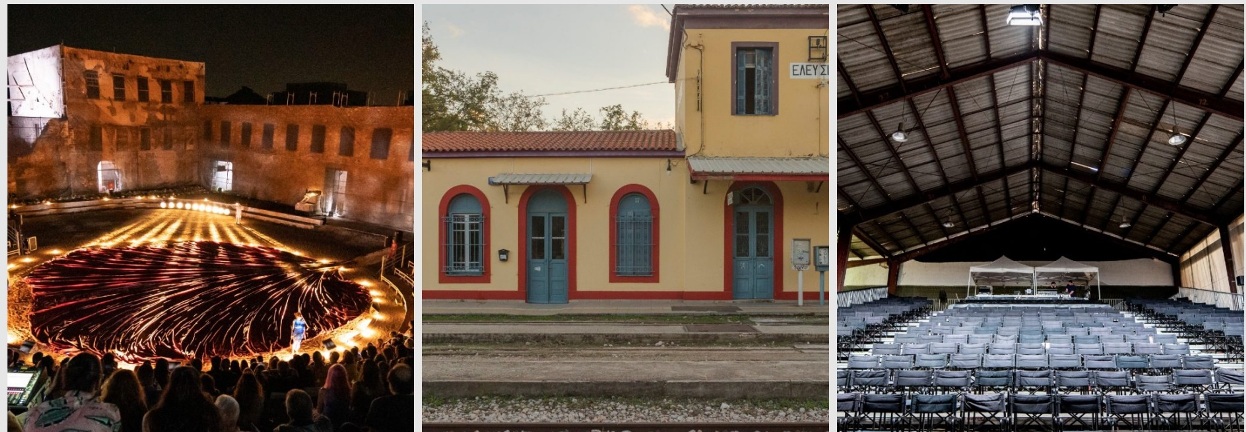 Left to Right: Charilaou Soap Factory, the Old Railway Station and the Eleourgiki Industrial Complex
Left to Right: Charilaou Soap Factory, the Old Railway Station and the Eleourgiki Industrial ComplexMystery_99 – The Ark
This February, 2023 Eleusis Cultural Capital of Europe organises ‘Mystery 99 – The Ark’ and welcomes Belgian collective Time Circus traverses Time Circus for the largest and greatest pilgrimage procession in Elefsina’s 3,500 year history from antiquity to the present day.The collective from Antwerp traverses Europe with a land ship (the Landship), that moves only with human strength. Their long journey aspires to be a comment on the 21st century of recession, climate change and careless consumption of natural resources, and an action of encouragement, strength, hope and participation of all European citizens. Their journey is an exercise in being “on the road”. Having already arrived on September 21st at their first stop, the city of Veszprém (Hungary), the “sister” European Capital of Culture of Elefsina for 2023, the team recounts their experience from five cities: Belgium, the Netherlands, Germany, Austria, Hungary. They will reach Elefsina on February 2023, to participate in the opening ceremony of the 2023 Eleusis European Capital of Culture and build an Ark of hope and eternal youth.
Mystery111_Eleusis Terracotta Army
The Eleusis Terracotta Army is a portrait of the city’s workforce. The project includes active and retired workers from various factories, for each of whom a handmade clay helmet will be created. Symbolic elements or words representing the person to whom it belongs will be engraved on each helmet. In May 2023, all the helmets will be displayed in a single exhibition at the Iris Factory. Afterwards, they will be distributed to the workers involved, who will keep them as a reminder of this giant project, and they will become parts of a monument in the community. This huge collective portrait is an ephemeral monument to the people who worked and those who still work in Elefsina.
An army made to represent the people who have forged the current image of the place they inhabit with their work, their physical effort and their lives. In the installation, the helmet functions as a symbolic element, as a protective item that is used by workers in all sectors of industrial activity. This handmade object made of clay creates a reference, beyond the industrial design, to the everyday and ritual objects from Antiquity that were excavated in the cemetery of Elefsina. In this way, it links the industrial present and past of the city with its ancient history.
Mystery 29_Elefsina – The Raw Museum
An exhibition beyond the walls of the city, which traces the key tiles in the mosaic of the phenomenon that is Elefsina so as to highlight fragments from its past and present. Elefsina – The Raw Museum attempts to interpret the city as an exhibit, and is the first in a series of gestures in this direction that will follow throughout the year 2023. Elefsina is many things, all of which coexist in what is schematically called the DNA of a place. It is antiquity and the modern era, folk culture and the domestic refugees and migrants that enrich it, emblematic industry and arduous labour; its relation to art; it is the contemporary banality of a typical provincial town of Greece, which nevertheless contains hidden unique and mysterious aspects. This may be true of any town, but it is always unique to each one. Above all, it is the people who make up the city’s core and turn its inhabitants into communities. The exhibition is designed to unfold on three levels and in multiple subject areas.
The first level adopts the logic of cabinets of curiosities, alluding to the origins of museological practice and paying tribute to the collectors of Elefsina who obsessively preserve the evidence of its past. Rare finds and everyday objects of sentimental value become treasures to be discovered. The second level makes use of distinguished figures in the local community and people whose lives are inextricably linked to Elefsina as tour guides for specific subject areas, through filmed interviews shown as large – scale digital portraits. The third level treats the exhibition as a gallery and Elefsina as an exhibit, starting with engravings by European travellers of the 17th and 18th century and continuing with contemporary photographic interpretations of its emblematic landmarks and typical views.
A few words about the institution
The European Capital of Culture started in 1985 as an initiative of Melina Merkouri and thanks to Jack Lang—with whom they shared this common European vision—it became one of the most important European cultural events. The aim of this highly prestigious institution is to promote the cultural diversity of Europe and to develop dialogue and mutual understanding between European citizens. The initiative wants to strengthen mobility between the countries of the European Union and facilitate the exchange of experiences as well as promote the cultural identity of the host city / country. With its elevation to European Capital of Culture, Elefsina joins the family of more than 70 European cities that have received the title to date, being at the same time one of the smallest populated cities in the history of the institution. For 2023, the title of European Capital of Culture is also hosted by the cities of Timisoara in Romania and Veszprem in Hungary.
Visit 2023eleusis.eu for a complete programme and further info.
I.L.

